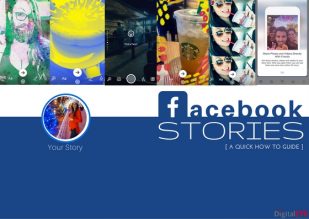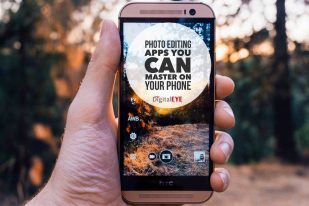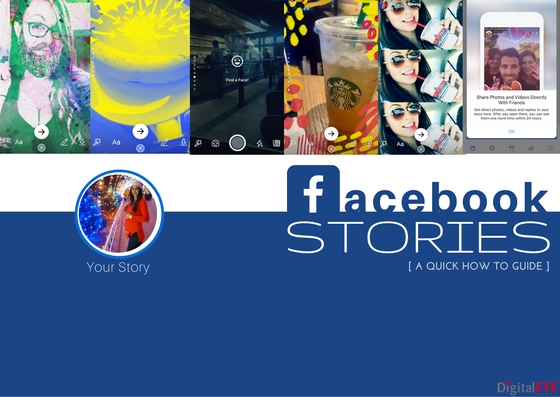How Bands Are Kicking Ass With Social Media
Bands have always been one to push new ideas whether it comes to music or other art forms but over the years, they’ve constantly pushed the envelope on the adoption and execution of social media. Any business or brand should take note on what these groups are doing in the online space, they’d be jealous.
Early 2007 saw Radiohead start what would become a growing wave of bands embracing some form of social media and breaking away from the traditional structure of using a record label to promote themselves. “In Rainbows” by English alternative band Radiohead, was released shortly after breaking away from their label EMI too much fanfare. What made the release significant besides it being the first in over 4 years from the band was the release method; a digital download that fans could get at any price, officially from the band itself. This meant that you could pay nothing, $5.23 or even $645 if you felt so inclined. What this would do for the music industry is jumpstart a process that would turn the traditional record label on its head, kick it down then slap it across the face with some Facebook, Twitter and Myspace updates along with a good helping of original band content on YouTube. What followed next was a massive jump to social media by smaller underground bands but major acts as well.
Interacting With Fans And Knocking Down The Record Labels With Social Media: Nine Inch Nails
Nine Inch Nail’s frontman, Trent Reznor, has been very vocal for his disdain of record labels since starting the industrial rock band in the late 80’s. 2005 saw his return to the music scene with a new release and a new crusade in regaining some of the control over material he lost to his label. The band’s first release in 5 year, With Teeth was accompanied by source files for a few tracks from the album. Trent encouraged fans to download the source tracks and create their own remixes of his songs then release it under any medium they saw fit. No royalties, no red tape, nothing that would inconvenience anyone from the average underground DJ to veteran sound producers. Remixers were free to do as they pleased which led to an ever increasing connection with fans that transcended interviews and other traditional promotions.
In 2007 the bands newest release, Year Zero, started a trend of artists, especially Nine Inch Nails embracing piracy. The album, which foretold of an Orwellian future painted with industrial overtones and electronic soundscapes was given away free to fans through a means any record label would do a double take over; torrenting it. Touring in support of the newest album, Reznor encouraged fans to download the album free of cost from wherever they could just to spite his label.
At a concert during late 2007 in Australia, Trent urged fans to pirate his album to circumvent the high CD prices his label had set. On the surface it may seem like a marketing attempt that would’ve jumpstarted any failing band but the difference between Nine Inch Nails and any act looking to cop out for cash was passion. Reznor was looking to truly connect with fans and felt the chains placed on him by management and labels was far too constricting. This is the ideal mythology of Social Media but Nine Inch Nails took it many steps forward by giving fans and potential listeners something to line; free.
Year Zero and subsequent releases would have some sort of option to listen to the album for free whether it was embracing piracy, a freemium-like model or even just giving it away. This meant that anyone slightly interested in the band had absolutely nothing to lose when listening to Nine Inch Nails’ material but the band’s connection with its fan base was also strengthened. Over the course of the next two years, NIN put out two new albums that continued this trend. The follow up to Year Zero, Ghosts Vol. 1-4 saw a tiered model of release which would delight the casual music listener all the way up to the perfectionist. The first 9 songs from the album’s 36 song setlist were available for free with absolutely no obligation. Piracy of the album itself was often encouraged but contrasted with elaborate and intricate physical releases containing artwork and packaging that added a whole other dimension to the release. The band ensured everyone had an option in digesting ‘Ghosts’, the best thing to take away from this is the tiered release model.
When one thinks of a tiered business model in today’s digital world, there is rarely an option available for free and if so, it’s limited in scope. Trent was able to build interest in NIN’s back catalog as well as current releases by letting listeners try out the material without any loss. If they didn’t like it, nothing lost, if they did, that meant a potential album download, a few dollars donated for a higher quality version or even a ticket purchase for forthcoming tours. As a thank you to fans, another album, “The Slip” was released almost a year later in 2008 that contained 10 songs in lossless quality and available totally free. No copyright infringement or legal action scares from a label but pure, wholeseome, free content that was complimented with an extensive tour weeks later.
Trent won a Webby Award in 2009 for his free, online release of “The Slip”
Embracing The Social Aspects Of YouTube: Weezer and Ok, Go!
The internet has given us access to a bevy of information but one of its most prevalent aspects has been memes. They’ve cropped up in various forms, touching upon different aspects of society yet they’re an avenue of inspiration for bands Weezer and Ok, Go.
Weezer released their single “Pork And Beans” via digital distribution in April 2008 with an accompanying music video. What set the video apart from other elaborate musical montages is its embrace of popular memes and celebrities on YouTube. The video pays homage to the Coke and Mentos guys doing experiments in the background while creating massive fountains of Mentos powered coke showers. Pianist and singerTay Zonday imitating the video style of his single “Chocolate Rain” while weaving in and out of Weezer’s own song. Star Wars Kid’s crazy lightsaber antics and Ms. South Carolina appearance are all referenced as YouTube pop-cult icons. Weezer instantly appealed to an audience of millions that regarded these memes as pop culture corner stones and as inspiration to create new content. The video went on to win a Grammy for Best Short Form Music Video.
Rock band Ok, gained significant popularity in 2005 after a choreographed video of their first single “A Million Ways” was first uploaded to YouTube. A year later in August 2006, the video had become the most downloaded music video at the time reaching 9 million downloads giving the band recognition for their odd choreographed videos. The band continued to gain significant notoriety for filming another choreographed video of them dancing on treadmills to an upbeat song they release, “Here We Go Again” which soon became a YouTube sensation. Within six days, over 1 million people had watched the video and eventually reached 50 million views of the original upload by April 2010.
Both of these bands appealed to a culture that thrived on the latest meme, the latest happening. Ok, Go and Weezer knew which spots to hit and created music videos around icons, concepts and ideas that were already well recognized by millions of YouTube users. By uploading their content directly to YouTube, they had an opportunity to tap in to those millions of people to promote their music.
Free Is Good, Free Is Social
If you have a product that can be released via digital means, promote it by giving it away to build interest. It’s not simply enough to give away the product and let others judge it; build hype and then release it for free or through a freemium like model to support a free version of your product in contrast to its paid equivalent.
These bands also experimented with a new and untested distribution model: digital. Your business and brand may have already experienced digital outlets but its important to stress that a lot of connections are being made online. The print industry is starting to embrace the digital world to supplement its losses from print media, your business can learn an important lesson if it’s still avoiding going online.
An aspect of this is the freemium model that offers basic services or product for free and charging more for more advanced versions of that product. Finding balance between free and paid is crucial to maintaing a freemium model for your business. Nine Inch Nails continues to experiment with this in some form but they’ve always maintained a balance. They’ve released an album in some form for free that will attract casual listeners and those interested in the band while selling a product that audiophiles will appreciate and pay for. Lacking balance with a freemium product will only distance potential consumers. If they don’t have a gateway product that doesn’t cost them anything and won’t take up too much of their time, they have no real way of gauging your services or products. The point of a freemium model is attracting potential consumers with a free version and selling them something they’re truly interested in.
Music And Social Media? How Can I Use That With My Business?
All of these bands innovated by connecting directly with their fans/consumers, they cut out the middle men, got off the stage and said “hey, let’s make it interesting to sell our music to you and have fun doing it.” The first and most important thing to take away from this is to connect DIRECTLY with your consumers, fans and friends. These bands embraced the very ideals of social media by creating Twitter accounts to announce ticket pre-sales, Facebook pages to gauge interest in releases, YouTube channels to release original content and personalized websites to let the community interact directly with the band. If you’re not taking mental notes on this, I don’t know what to tell you. All of these outlets were critical for keeping fans interested in the band and attracting new followers, simply setting up these channels, maintaining them and populating them with worthwhile content can have the same effect on your brand.
You also need to measure the effectiveness of these channels on a regular basis. Guessing what works instead of having hard numbers in front of you will be the downfall of your online presence. Bands have had these tools at their disposal for years. What once started as radio plays has morphed in to a number of tracking services. Your song version, Retweets, YouTube channel views, Facebook Likes, Klout Score and Google Analytics. Not checking these numbers and ignoring them when they’re not bringing in enough unique visitors is fatal.
These bands also stuck to their genres but carved out new niches for themselves. Maintaining your brand’s identity is critical but it’s just as important to test new waters and explore them diligently. Don’t go overboard and totally depart from what made your company or brand what it is but adding something interesting in to the mix will help maintain interest.
When looking to expand your business, looking for new perspectives is important. Music has always been an inspiration for artists and writers, there isn’t any reason musicians shouldn’t be a role model for your business or brand. What we’d like to know is what you can do with this strategy for YOUR business. Let us know in the comments.









[…] previously wrote about how bands were kicking ass at using social media and how your brand or business could take note of it but what if your not an influential rock band […]